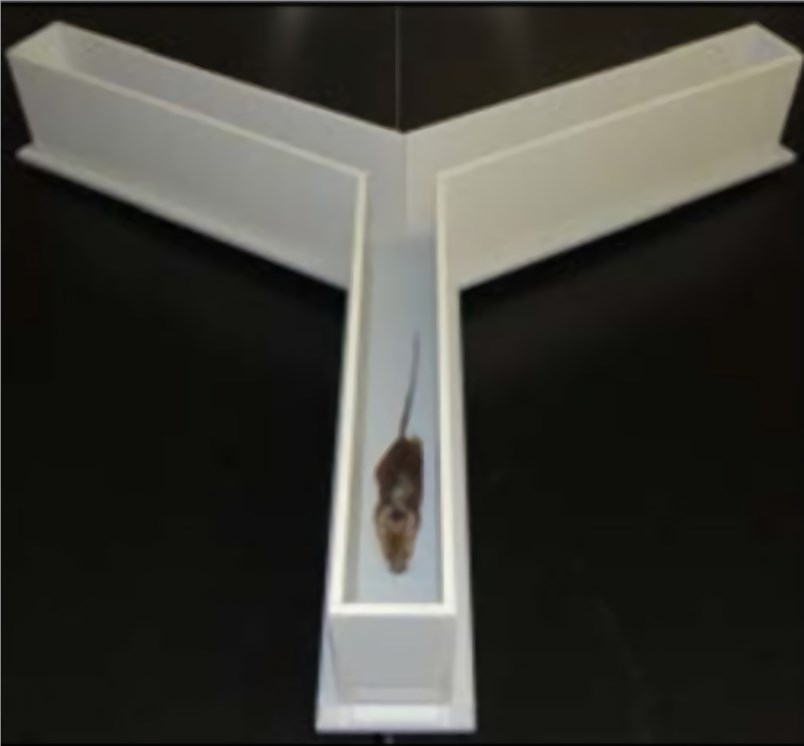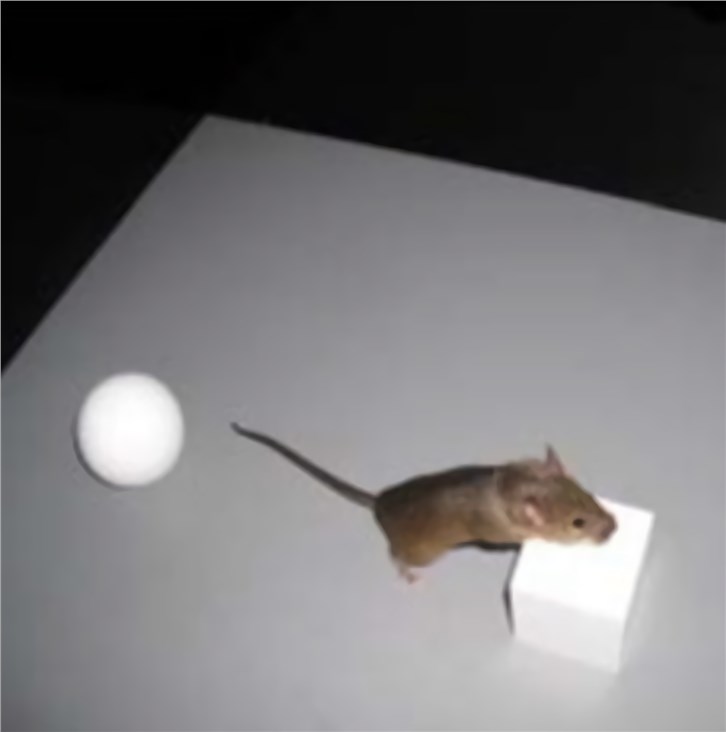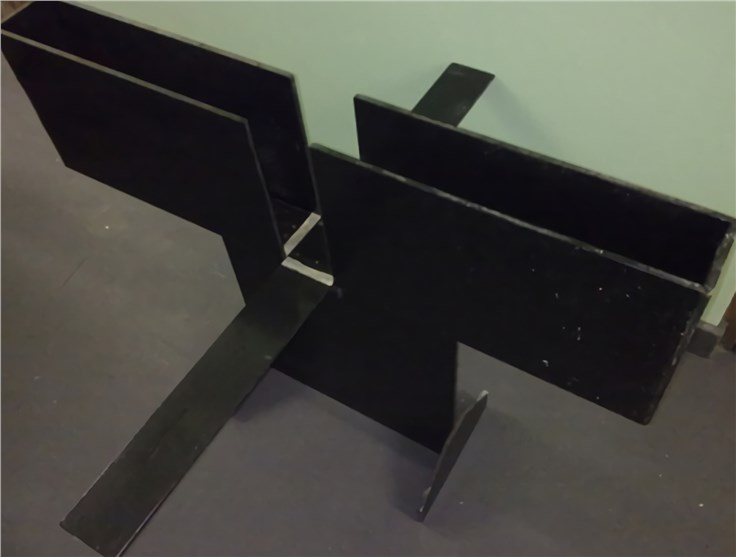Rodent Behavioral Tests for Cognition
Cognition is a psychological term that includes the processes of learning, memory, and attention, as well as perception, language, intelligence, and reasoning. Cognitive phenomena are essentially internal psychological processes which, from the experimental point of view, must be inferred from overt changes in an organism's behavior. Testing of cognitive functions in rodent disease models constitutes a substantial sector of behavioral neuroscience. It is most often needed in phenotyping genetically modified new rodent (usually mouse) lines or in preclinical testing of cognitive effects of new CNS drugs. Creative Biolabs offers a wide range of behavioral tests to assess cognitive functions in rodents.
 Fig.1 Y maze. (Wolf et al. 2016)1, 2
Fig.1 Y maze. (Wolf et al. 2016)1, 2
Morris water task is a test widely used and established by behavioral physiologist and pharmacologist to evaluate and compare learning and memory in rodents. It is based on the rodent's (rats or mice) aversion to the water environment. The apparatus consists of a water-filled pool with a hidden escape platform beneath the surface of the water. When the animal is released into the water, it will swim around the pool to look for the platform to escape from the water. The spatial memory is separately assessed in a probe trial without the platform.
The Y maze is widely used to assess behavioral task in preclinical research for studying spatial learning and memory. On one hand, the spontaneous alteration test is used to assess hippocampal damage, quantify the cognitive deficits in transgenic mice, and evaluate the effects of drugs on cognition. On the other hand, the recognition memory test is used to test memory functions in mice.
The radial arm maze is a commonly used task to assess two types of memory: reference memory and working memory. Animals are placed on the central platform of the radial arm maze and allowed to explore the maze for reinforcers (baits) placed at the end of each arm. The failure to only visit the arms of the maze containing the reward is regarded as reference memory error while re-entry into the arms is regarded as a working memory error.
 Fig.2 NOR task. (Wolf et al. 2016)1, 2
Fig.2 NOR task. (Wolf et al. 2016)1, 2
Novel Object Recognition (NOR)Task
The novel object recognition is a widely used animal model to evaluate the effect of drug candidates on short-term memory, intermediate-term memory, and long-term memory, by assessment of the amount of time for which animals must retain memory of the sample objects placed during the recognition phase before the test phase, when one of the familiar objects is replaced by a novel one.
The contextual and cued fear conditioning test is one of the most widely used behavioral paradigms used to assess associative fear learning and memory in rodents. This test is widely used to characterize mutant mice and the effects of genetic alterations, as well as to evaluate drug compounds' ability to reverse drug-induced deficits in memory.
 Fig.3 Elevated Plus Maze. (Wolf et al. 2016)1, 2
Fig.3 Elevated Plus Maze. (Wolf et al. 2016)1, 2
Passive avoidance is fear-motivated tests classically used to assess long-term memory based on negative reinforcement in small laboratory animals (rat, mice). In this test, memory performance is assessed by recording the latency to escape from the white compartment.
Elevated plus maze is the simplest equipment used to study the drugs affecting learning and memory. It can be explored using transfer latency (TL) as a parameter for acquisition and retention of memory process. This apparatus is also used to assess the drugs which produce acquisition deficit.
Creative Biolabs provides highly customized behavioral tests to suit specific scientific needs. Moreover, new behavioral tests of cognitive function are constantly developed and validated.
As an undisputed specialist in neurological disease drug development, Creative Biolabs has an extensive range of rodent neurological disease models, which are widely used for drug efficacy studies combined with different behavioral tests. If you are interested, click the links for more detailed description.
For more information, please contact us or send us an inquiry.
References
- Wolf, A.; et al. A comprehensive behavioral test battery to assess learning and memory in 129S6/Tg2576 mice[J]. Plos One. 2016, 11(1): e0147733.
- under Open Access license CC BY 4.0, without modification.
For Research Use Only.
